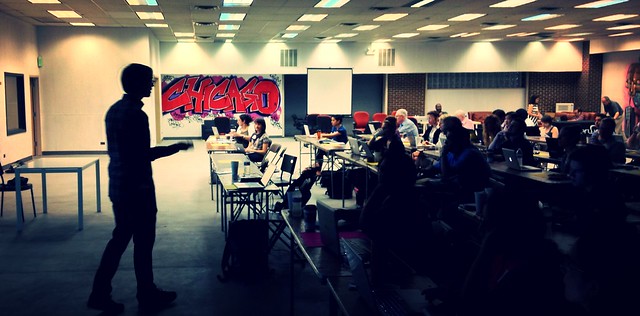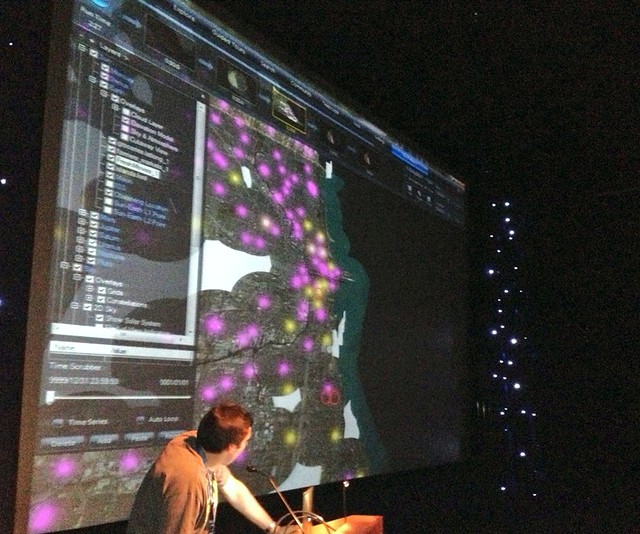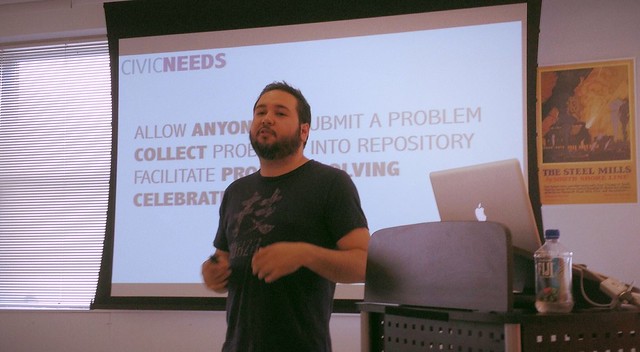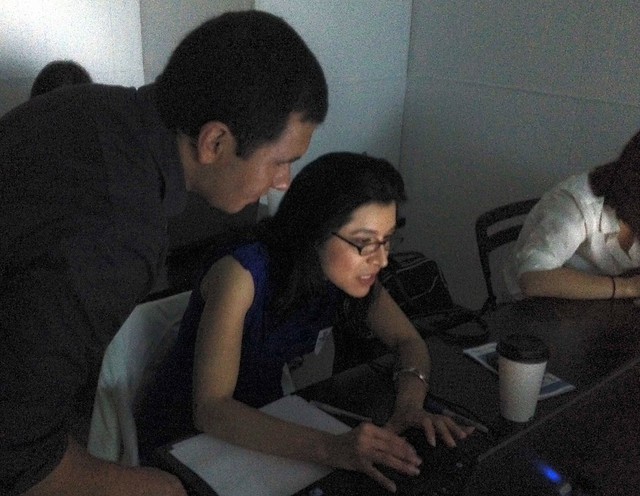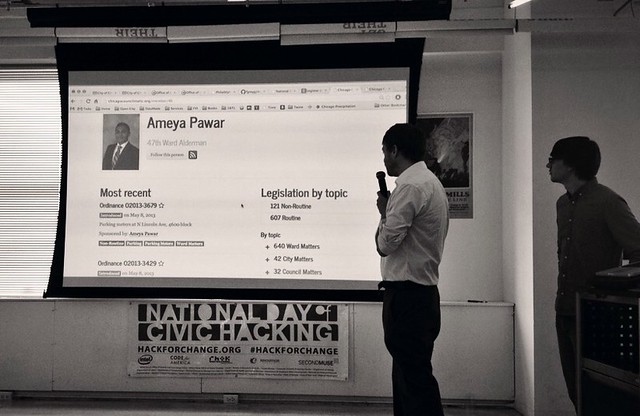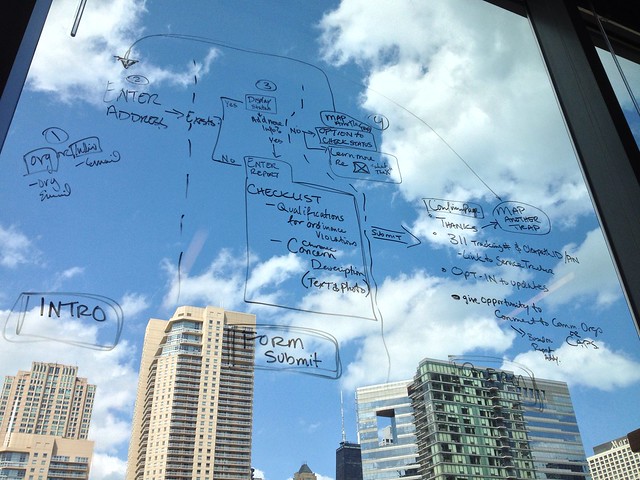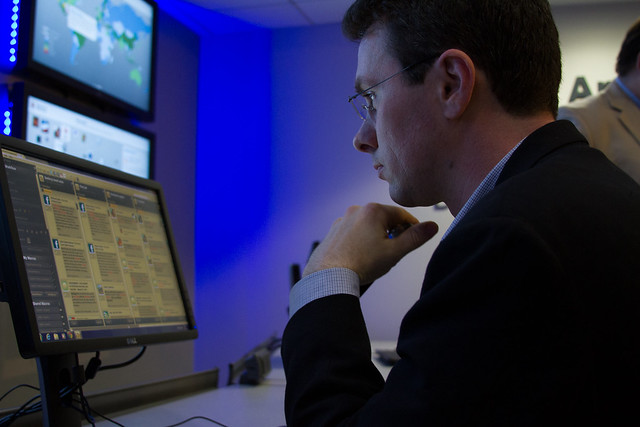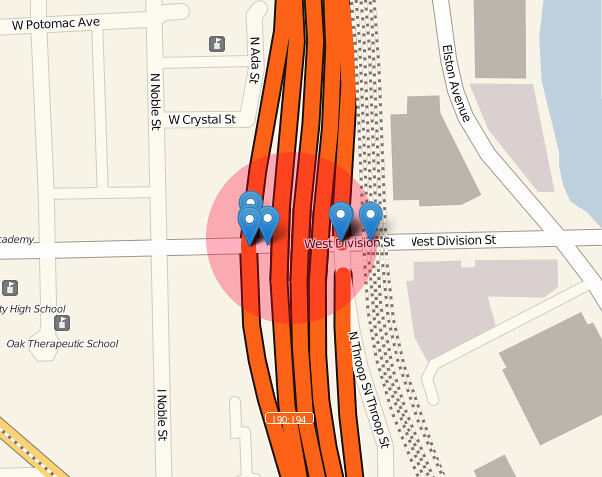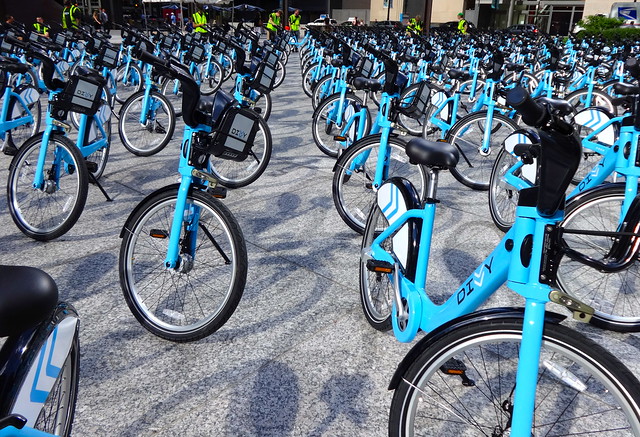
Just four days after the launch of the Divvy Bike Sharing program, Chicago’s civic technology community had already put together a prototype app and an API using bike share data.
Chicago OpenGov Hack Night played host to representatives from both Alta Bicycles (The company that manages Divvy) and the Chicago Department of Transportation to talk about the new bike share program and the data that’s available.
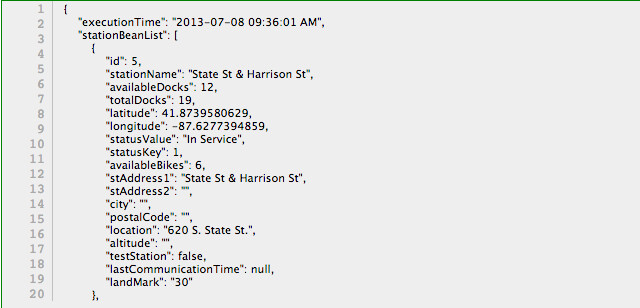
A screenshot of the raw data obtained from the Divvy website.
The first data set, available at (http://divvybikes.com/stations/json), gives information on real-time usage statistics and availability of bikes per station.
This data set reflects the same format from other bike share systems across the globe. This enabled Chicago’s data to be merged into other bike apps such as Oliver O’Brian’s Global Bike Share Map.
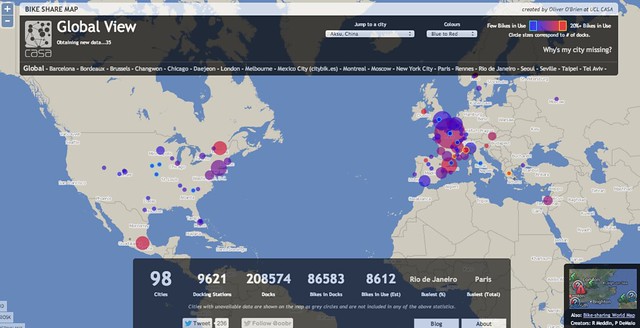
Locally, Ian Dees and Steve Vance have been hard at work building applications with this new data set. They have put together google document that contains a list of resources for the civic innovation community who are interested in working with bike share data. Dees has built an API that makes it easier to access the bike data. Vance has already taken advantage of this API to provide bike share information in his Chicago Bike Guide. (As a reminder, this was presented to OpenGov Hack Night just FOUR DAYS after the launch of Divvy.)
Steve Vance and Ian Dees discuss apps that are built using bike share data
Daniel Gohlke from Alta bikes answered questions about the in and outs of the data as well as plans to release information on the most active routes and where people are biking. Gohlke’s stated that in most cities this data is released quarterly, but if CDOT wants to release this data at an increased frequency that it should be possible.
Daniel explains about the data provided by the Divvy system
Question and answer session with representatives from Divvy and CDOT
Given that Divvy was only launched for a little over 2 weeks ago, we’re excited about what’s to come in terms of potential uses for this data. John Tolva, Chief Technology Officer for Chicago, would like to see data from different transportation systems integrated into a single app:
“The speed with which our civic innovation community seized on Divvy data gives me great hope that a truly multi-model, hyperlocal journey planning service — across cabs, public transit, shared bikes — can be assembled fairly easily. Most of the data is there. All that’s needed is an intelligent stitching-together.”
For those interested in working on bike share data, you’re invited to attend the next OpenGov Hack Night – every Tuesday at 6:00pm inside 1871.
